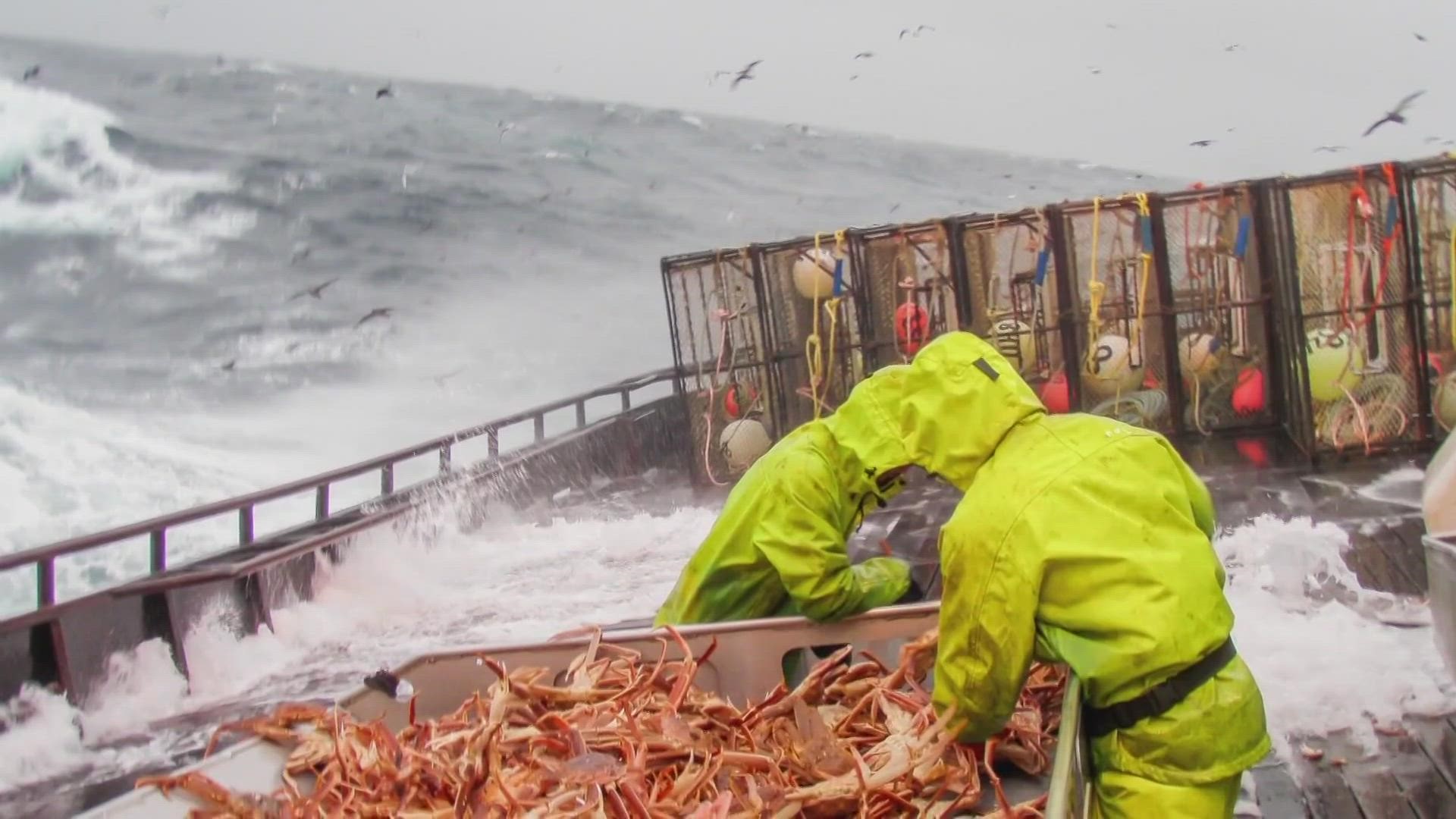SEATTLE — Some emergency relief money is on the way to help crabbers impacted by the historic closure of the Bering Sea snow crab and Bristol Bay red king crab harvests in Alaska.
Washington-based fishermen, however, say more lasting attention, research and action is needed to preserve the industry as a sustainable way of life for generational small businesses.
Mark Casto owns the fishing vessel Pinnacle and says he's been crabbing since he graduated from high school in 1986.
"I grew up in it, as a little kid I used to do it growing up, it got in my blood and it's just been a way of life for me," Casto said.
He's crabbed with the same crewmates for years- some, for decades- and they've become a team that can anticipate each other's next move. When Bering Sea snow crab was cancelled, they were scattered- all forced to find another way to make a living during the season.
"A few years ago I saw some stuff coming and geared up to tender, so we tendered salmon for a few years and this year with the closure of the king crab and the snow crab, we're doing some cod tendering, just enough to keep the boat busy, get it up there, and we'll do a small Bairdi after that," Casto said. "But it's a trickle-down effect. It's hitting everybody, from the bait people to the shipyard people to the meat guys that've been supplying boats for years and years."
The National Oceanic and Atmospheric Administration says red king crab was closed in Bristol Bay after a years-long decline propelled by climate change. But the Bering Sea snow crab closure was more of a shock, with NOAA citing the aftermath of the 2019 marine heatwave sometimes referred to as "the blob."
"Everybody's not all in agreement on what happened to the crab, what went down, but there's a lot of different things that contribute to crab populations going down and one of them is climate change," said Lance Farr, a recently retired crab skipper and owner of the Kevleen K. "Climate change is real, and we're kind of a canary in the coalmine, we think, as far as fisheries in the United States, and we just need to be thinking about that- ways we can make fisheries climate-ready."
Casto's crew is making do this season -- some tendering cod, some fishing Dungeness -- but it doesn't compare to the work that's fed his family for decades.
The Alaska Bering Sea Crabbers Association represents crabbers taking the hit, many of whom live in Washington. It is grateful for an emergency declaration to help cover costs crabbers suffered this season, but it worries crab pots sitting dormant will be a problem beyond this year unless major action is taken. It believes a three-prong approach to crisis management is needed -- including rapid financial relief, flexible and responsive management, and continued support of science and research.
"We're thankful to the Congressional Delegation for getting us money for research and stuff and that's what needs to happen," Farr said. "We need to get the research so that we can get a little better handle on what's going on and maybe do something that we need to do in the future the way that the climate is changing."
Still, Farr is concerned about how current crabbers will fare in upcoming years- and hopes attention stays on the issue.
"Not all the boats are gonna make it through this," Farr said. "It's gonna be a financial disaster, so we're not thinking this fishery's gonna be back next year, it's going to be a few years, so we're going to have really tough years before things get better."
Crabbers like Casto believe part of the solution is more collaboration among fisheries. There are concerns about other types of fishing impacting crab health and safety- though the conversations can be challenging.
"I hope all the fisheries can work together and look to the future together and how we can maintain our businesses," Casto said.
As for how the closures are impacting Puget Sound in the meantime, crabbers say the effects trickle down from fishermen to other businesses as well.
"It's hitting everybody, from the bay people to the shipyard people to the meat guys," Casto said. "We need to look to the future and come up with some better science and figure out a way to survive during these down times."

